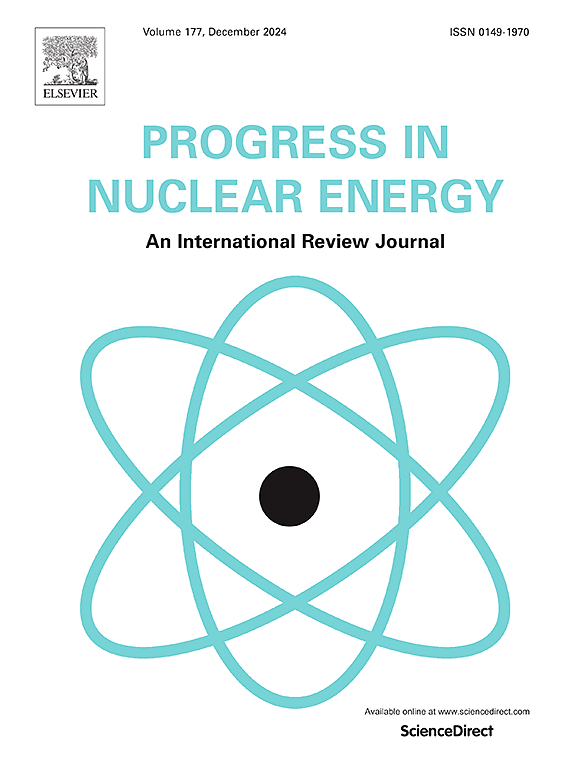Independent Nuclide Simulation Method (INSM) – A depletion algorithm for simulating the intermediate process of nuclide transmutation
IF 3.3
3区 工程技术
Q1 NUCLEAR SCIENCE & TECHNOLOGY
引用次数: 0
Abstract
Existing depletion algorithms are limited to estimating the final concentrations of nuclides and lack the capability for an in-depth analysis of nuclide transmutation. We propose an Independent Nuclide Simulation Method (INSM), which allows for a detailed nuclide transmutation analysis. In addition to determining the final nuclide concentrations, INSM enables the determination of nuclide transmutation paths, proportions of different reactions, and the conversion rates between nuclides. Implementation involves dividing the whole burnup time into multiple steps, solving nuclide transmutations within each step, and simulating all steps for the entire burnup process. Its simulation process avoids intricate analytical calculations and gives a clear physical image of the real physical process. INSM presents high precision, offering quantitative insights into intermediate information on nuclide transmutation, which is applicable in the field of reactor physics and isotope production.
求助全文
约1分钟内获得全文
求助全文
来源期刊

Progress in Nuclear Energy
工程技术-核科学技术
CiteScore
5.30
自引率
14.80%
发文量
331
审稿时长
3.5 months
期刊介绍:
Progress in Nuclear Energy is an international review journal covering all aspects of nuclear science and engineering. In keeping with the maturity of nuclear power, articles on safety, siting and environmental problems are encouraged, as are those associated with economics and fuel management. However, basic physics and engineering will remain an important aspect of the editorial policy. Articles published are either of a review nature or present new material in more depth. They are aimed at researchers and technically-oriented managers working in the nuclear energy field.
Please note the following:
1) PNE seeks high quality research papers which are medium to long in length. Short research papers should be submitted to the journal Annals in Nuclear Energy.
2) PNE reserves the right to reject papers which are based solely on routine application of computer codes used to produce reactor designs or explain existing reactor phenomena. Such papers, although worthy, are best left as laboratory reports whereas Progress in Nuclear Energy seeks papers of originality, which are archival in nature, in the fields of mathematical and experimental nuclear technology, including fission, fusion (blanket physics, radiation damage), safety, materials aspects, economics, etc.
3) Review papers, which may occasionally be invited, are particularly sought by the journal in these fields.
 求助内容:
求助内容: 应助结果提醒方式:
应助结果提醒方式:


